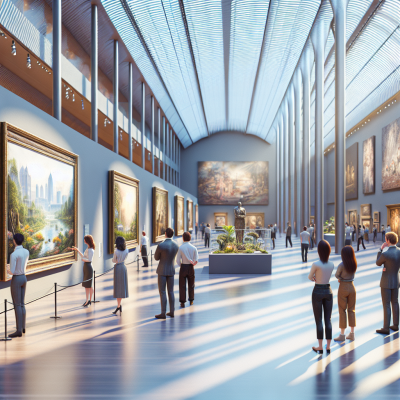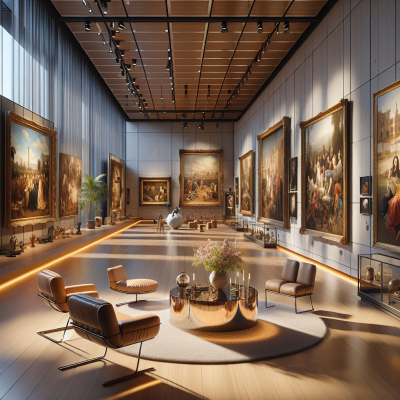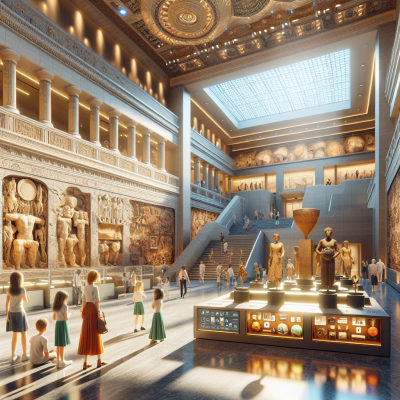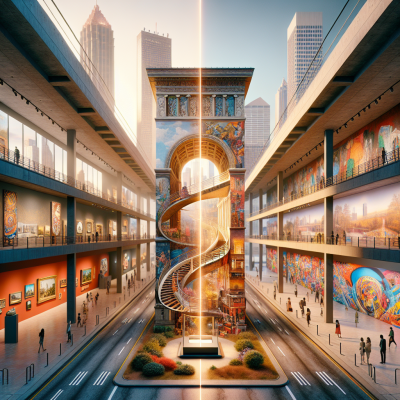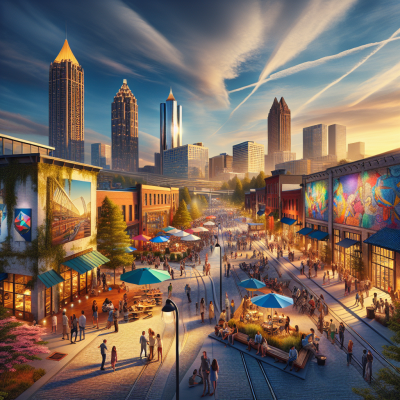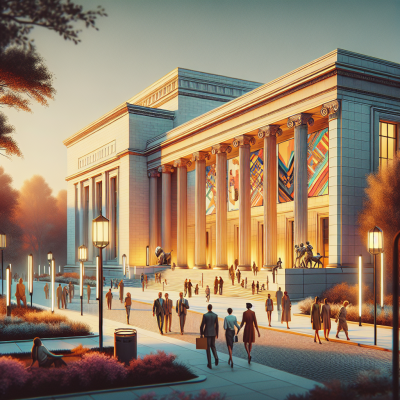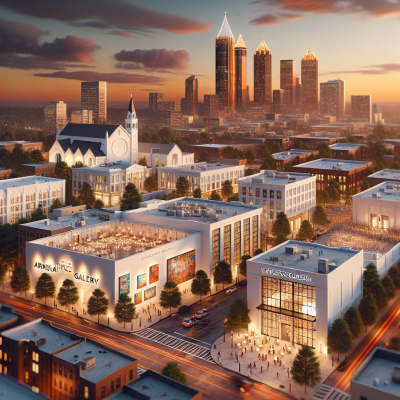
Galleries and Alternative Art Spaces
Renowned Art Galleries in Atlanta
Whitespace Gallery
Whitespace Gallery, nestled in the historic Inman Park neighborhood, is one of Atlanta's most esteemed art spaces. Founded by Susan Bridges in 2006, the gallery has established a reputation for showcasing contemporary art that challenges and inspires. Set in a converted carriage house, the space itself exudes a blend of rustic and modern charm that perfectly complements the diverse and often avant-garde exhibitions it hosts.
Key exhibitions at Whitespace include both solo and group shows featuring local, national, and international artists. The gallery is known for its focus on emerging artists and innovative media, making it a bastion for fresh voices and experimental works. Notable past exhibits have included themes ranging from social justice and identity to abstract exploration, all contributing to the rich tapestry of Atlanta's art scene.
Whitespace also integrates interdisciplinary events, such as artist talks, poetry readings, and performance art, providing a comprehensive cultural experience for visitors. This engagement not only attracts art connoisseurs but also community members who may not traditionally engage with the visual arts, thus broadening the audience and impact of contemporary art in Atlanta.
Arnika Dawkins Gallery
Located in the vibrant Cascade Heights community, the Arnika Dawkins Gallery is a beacon for fine art photography enthusiasts. Founded by Arnika Dawkins, the gallery is dedicated to showcasing photographs by both emerging and established artists, with a special emphasis on images by African-American artists and those depicting the African diaspora.
The gallery's mission is not only to exhibit stunning and compelling photographs but also to educate and inspire the community. Through a range of thoughtfully curated exhibitions, Arnika Dawkins Gallery addresses essential cultural narratives and highlights underrepresented voices in the art world. Each exhibition is carefully curated to provoke thought and dialogue, often exploring themes such as heritage, identity, and resilience.
Arnika Dawkins Gallery is an inviting space where collectors and art enthusiasts alike can appreciate the power of photography. The gallery frequently hosts artist talks and panel discussions, facilitating meaningful conversations between artists and the public. Furthermore, the gallery participates in Atlanta Celebrates Photography, adding to its prominence in the city's dynamic art circuit.
Community Art Centers and Their Impact
The Role of Neighborhood Art Programs
Neighborhood art programs are vital to the cultural vibrancy of Atlanta, and they play a crucial role in community development. These programs often operate within community art centers, providing accessible platforms for artistic expression and education. By organizing workshops, classes, and exhibitions, neighborhood art programs create a nurturing environment for aspiring artists of all ages.
In Atlanta, these programs encourage local participation in the arts and foster a sense of community pride and identity. Many centers focus on outreach to underserved populations, ensuring that art is inclusive and accessible. They become community hubs where creativity is celebrated and local culture is preserved and promoted.
Neighborhood art programs also serve as incubators for talent, often revealing new artists who contribute to the broader Atlanta art scene. Their impact extends beyond cultural enrichment as they encourage teamwork and collaboration, foster creative problem-solving skills, and boost self-esteem among participants.
Creating Art Spaces for Underrepresented Artists
Creating art spaces for underrepresented artists is a fundamental aspect of Atlanta’s diverse art ecosystem. Many galleries and community centers prioritize inclusion and representation, offering opportunities for artists who may lack access to traditional venues. This commitment ensures that the city’s art scene reflects its diverse demographics and leverages the rich perspectives of its varied populace.
By addressing representational gaps within the art world, Atlanta provides a more equitable platform for artists of different backgrounds, including racial and ethnic minorities, LGBTQ+ artists, and those working with less popular or unconventional forms of media. These efforts are supported by various initiatives, including financial grants, residency programs, and mentorship opportunities, all aimed at leveling the playing field.
Diversity in art not only enriches the local scene but also challenges prevailing narratives and encourages broader societal reflection. As such, these art spaces become places of innovation and dialogue, where cultural boundaries are explored and expanded. Through exhibitions, workshops, and public events, underrepresented artists find a voice and a venue, contributing to a richer, more inclusive cultural tapestry for all Atlantans to explore and enjoy.
